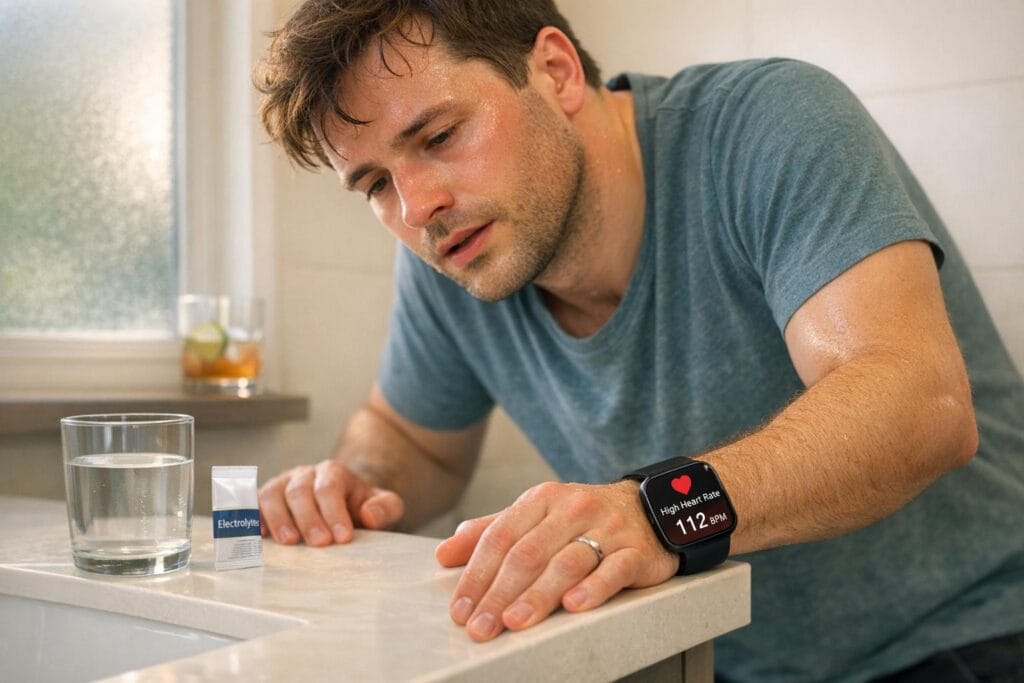Substance abuse disorder, or drug addiction, is a potent disease that people cannot just simply wake up and quit (withdrawal), however much they want to transform their lives.
People with substance abuse disorder have their bodies accustomed to functioning under the influence of drugs. But once this supply is cut off, nerve cells find it difficult to readjust to functioning without it. This is called physical dependency.
Psychological or mental dependency is when the addict believes they need the drug to function. It might be at specific times of the day while engaging in various activities or vaguely all the time.
Therefore, quitting drugs at the addiction stage is physically and mentally strenuous.
What is substance withdrawal?
Also known as detox, it is the set of physiological and mental symptoms a person experiences due to cutting back or quitting drugs cold turkey, after developing a physical and psychological dependency.
Drug withdrawal symptoms are usually prevalent within a day or two of discontinued substance abuse. Sometimes, it can take only 8 hours since the last usage for these symptoms to begin.
However, the intensity and duration of withdrawal symptoms may vary depending on:
- The substance being abused.
- Genetic makeup and family history of the addict.
- Method of ingestion (e.g., smoking, swallowing, injecting, or inhaling)
- Period of abuse of the substance.
- Amount consumed each time.
- Medical and mental health factors.
- Level of substance dependency
So how can one tell their loved one is suffering from withdrawal? What are the most prevalent symptoms of withdrawal?
Common withdrawal symptoms:
1. Cravings
Learning to manage cravings is one of the most challenging parts of quitting. Figuring out what induces them can tremendously help reduce them.
2. Irritability
The addict is more than likely to get easily irritated and grumpy over little things. Behavior such as shouting, snapping or sudden mood swings are a clear indication that the individual may be going through withdrawal.
3. Restlessness
Increased restlessness over the first few weeks of quitting is expected. This is because the mind and body are lacking the pent-up energy that results from the ‘high’ of drugs.
4. Lack of concentration
With the cravings intensifying, it will be nearly impossible for the mind to focus on something else other than what it is lacking.
5. Increased appetite or gaining weight
Stress eating may result from the need to engage one’s mouth and hands. Due to this unusual increase in appetite, the body may not burn calories quite as fast. Therefore many people gain weight after quitting drugs.
6. Anxiety or depression
There may be anxiety when doing mundane things such as using the elevator, leaving the house, or even crossing the street.
In extreme cases, the addict may lose interest in day-to-day activities and eventually fall into depression and even consider suicide.
7. Insomnia
Having trouble sleeping may occur during the first few weeks of quitting. If this condition persists without any help, it may spawn into relapse or even anxiety episodes.
Other withdrawal symptoms include:
- Muscle spasms
- Hypertension
- Frequent muscle and bone aches
- Fatigue and sweating
- Seizures
- Low sex drive
- Digestion problems
- Hallucinations
- Dehydration
- Dilated pupils
- Abdominal cramps
- Vomiting
- Paranoia
- Dementia
Some of these symptoms can be severe enough to cause death if left untreated.
What can you do?
Provide support
When one is on the quest to sobriety, they need ultimate support – even if all you can offer is your presence. Validation is very important as withdrawal tends to be lonely and shameful.
While at it, always keep positive energy as a show of confidence that they will make it through.
Advise them to seek professional help
Although there are people who’ve gone the cold-turkey approach and made it through, it is very dangerous for substances like opiates, benzos, and alcohol. These drugs are associated with increased risks and intense withdrawal symptoms.
Seeking professional treatment will keep your loved one monitored 24/7 and therefore safe in case of emerging symptoms.
Alcohol withdrawal, for instance, can lead to delirium tremens syndrome (DTs) which causes severe seizures and death if not medically managed.

In addition, a medical detox program will relieve cravings and other symptoms with the proper medication. They will have access to antidepressants, anticonvulsants, and antinausea medication to alleviate these symptoms.
Enroll them in inpatient detoxification centers for the first few weeks after quitting. Outpatient care is recommendable once they are out of danger.
Remove any triggering obstacles
It is crucial to keep withdrawal patients away from challenges or things likely to trigger craving episodes.
This can be a long list from friends who use drugs to objects like ashtrays, passing through a smoking zone, or watching drug abuse-related films. It is essential to keep your loved one away from any temptations.
Provide useful distraction
Engage your recovering addict in activities that keep them occupied. You can go for short trips, long walks, take a swim, read magazines, or watch movies that will not predispose them to any potential setbacks.
Prepare them on how to deal with potential setbacks
It might be inevitable to control everything in their vicinity. However, it will be beneficial to train a recovering withdrawal patient on how to respond to various circumstances.
As an example, you can both do exercises that relieve stress, such as yoga and meditation, enjoy spa treatments and encourage proper nutrition to minimize the risk of relapse.

Always keep your boundaries
Although this is the most vulnerable period to any recovering addict, keeping solid boundaries is salient in your relationship. Remember, this is the time to adopt coping mechanisms that are adequate for their recovery journey.
Therefore, take care not to foster bad habits such as lies, criticism, name-calling, or covering up drug-related activities in the name of recovery. Call out bad habits as they come.
Encourage them to join support groups
During the withdrawal window, patients are usually confused and full of anxiety. This is the least opportune time to engage a recovering addict in numerous counseling sessions that will be futile.
Normally, a medical detox treatment lasts about 5-10 days. It is after this period that you can encourage your loved one to willingly join support groups or start therapy sessions.
Giveaway message
Once you are aware that your loved one or friend is willing to go sober, it is important to familiarize yourself with the effects of the drug in use.
This will come in handy in preparing you for the worst and the measures you can take to help them through their withdrawal and life to sobriety.
References


